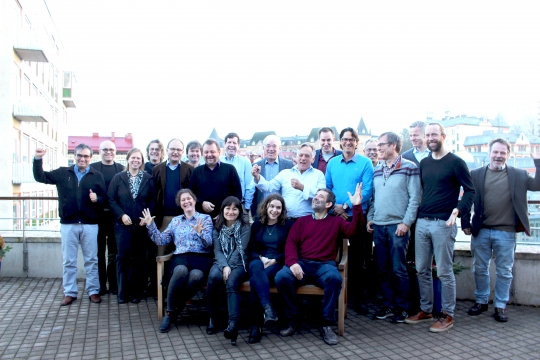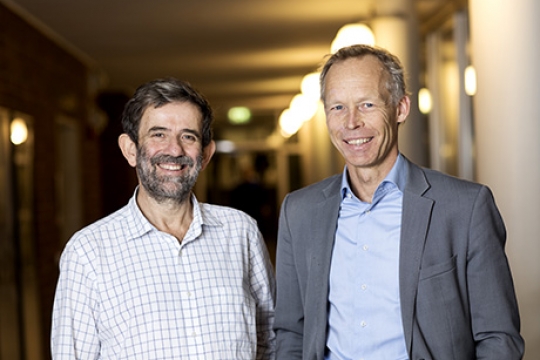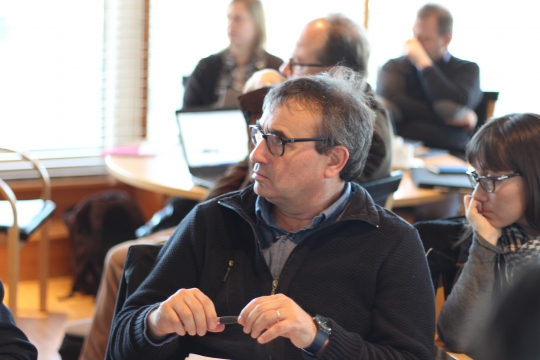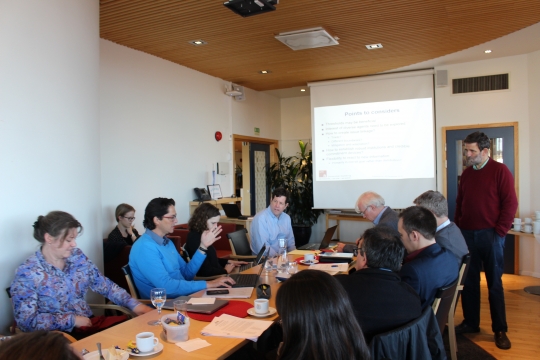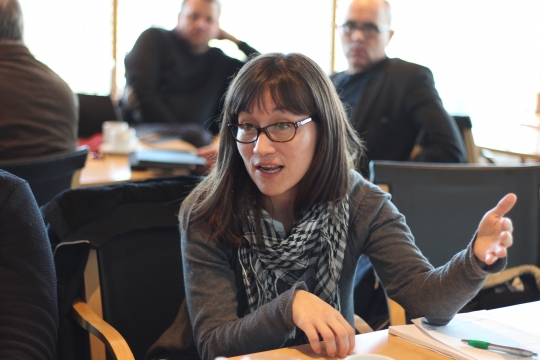What policies are needed to cope with the global environmental challenges? What can scientists learn from economists and vice-versa?
In December, Thomas Sterner, professor of environmental economics, University of Gothenburg and Johan Rockström, professor of environmental science, Stockholm Resilience Center, gathered a group of 25 international researchers from various disciplines at the University of Gothenburg for a workshop on policies for planetary boundaries.
The framework planetary boundaries was first presented by Johan Rockström, Will Steffen and others in 2009, as an effort to define the status of essential ecosystems. Since the human impact on the planet has fundamentally changed the ecosystems, we have now entered a new geological epoch: the Anthropocene.
For decades, Thomas Sterner has worked on identifying useful policy instruments to tackle environmental problems, particularly climate change. Now Sterner wants these fields of expertise to meet, the environmental scientists and the economists, but also other social scientists.
“The purpose of this workshop is to formulate a coherent response and framework for analyzing the question of how to design policies to meet the challenge of avoiding damage from crossing planetary boundaries”, says Sterner.
Can you explain how you can combine the knowledge of planetary boundaries with policy design, the latter being a key area in environmental economics?
“There is a body of literature on policy design to deal with environmental problems but the new research on planetary boundaries suggests that the problems are different to what we are used to deal with. They are more large scale – in fact global and thus cross the boundaries of nations. They are also of longer duration and of considerable complexity. All these features contribute to making the policy design a bigger challenge.”
The workshop Policies for Planetary Boundaries takes place after the publication of the latest paper on planetary boundaries and after the Fifth Assessment Report of the IPCC , which is a thorough review of policy making for climate change. Thomas Sterner took the initiative and led the preparatory work.
“I hope to lead the proceedings and steer towards the writing of a good article.The main purpose is a seminal article that hopefully will initiate a whole area of research.”
The workshop takes place at the School of Business, Economics and Law, University of Gothenburg, 7-8 December 2016, with support from Stockholm Resilience Center, Stockholm University and BECC, a joint research program between Lund University and University of Gothenburg.
Text: Marie Andersson
Photo: Johan Wingborg
